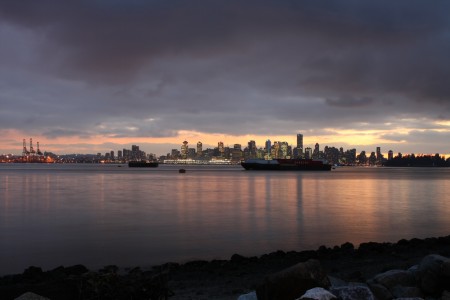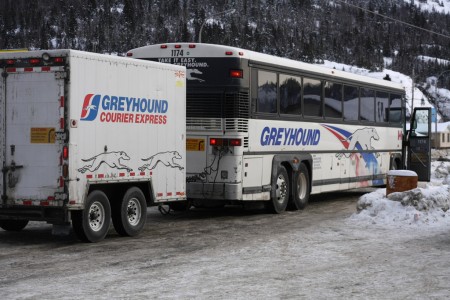
Back in 2008, I wrote about whether ‘runaway’ climate change might be possible on Earth. At one point, Venus had liquid water on its surface. Then, the sun grew brighter and Venus warmed. Its oceans evaporated and huge amounts of carbon dioxide (CO2) got baked out of the crust. The heat made the water break up into hydrogen and oxygen: the oxygen bonded with carbon to make more CO2, and much of the hydrogen escaped into space. Venus became permanently hostile to life, with surface temperatures of 450°C.
Could burning all of Earth’s fossil fuels produce the same outcome?
Some people take comfort from the fact that there have been times in the history of the planet when greenhouse gas concentrations were much higher than now. The world was very different, but there was no runaway greenhouse and life endured. James Hansen devotes the entire tenth chapter of Storms of My Grandchildren to considering whether this assessment is valid. Three things give him pause:
- The sun is brighter now than it was during past periods with very high greenhouse gas concentrations. The 2% additional brightness corresponds to a forcing of about 4 watts per square metre and is akin to a doubling of CO2 concentrations.
- For various reasons, the greenhouse gas concentrations in past hot periods may not have been as high as we thought.
- We are introducing greenhouse gases into the atmosphere far more quickly than natural processes ever did. This might cause fast (positive) feedback effects to manifest themselves forcefully, before slower (negative) feedback effects can get going.
He also explains that the sharp warming that took place during the Paleocene–Eocene Thermal Maximum (PETM) were not caused by fossil fuels (which remained underground), but rather by the release of methane from permafrost and clathrates. If human emissions warm the planet enough to release that methane again, it could add a PETM-level warming on top of the warming caused by human beings.
Hansen’s conclusions are, frankly, terrifying:
The paleoclimate record does not provide a case with a climate forcing of the magnitude and speed that will occur if fossil fuels are all burned. Models are nowhere near the stage at which they can predict reliably when major ice sheet disintegration will begin. Nor can we say how close we are to methane hydrate instability. But these are questions of when, not if. If we burn all the fossil fuels, the ice sheets almost surely will melt entirely, with the final sea level rise about 75 meters (250 feet), with most of that possibly occurring within a time scale of centuries. Methane hydrates are likely to be more extensive and vulnerable now than they were in the early Cenozoic. It is difficult to imagine how the methane clathrates could survive, once the ocean has had time to warm. In that event a PETM-like warming could be added on top of the fossil fuel warming.
After the ice is gone, would Earth proceed to the Venus syndrome, a runaway greenhouse effect that would destroy all life on the planet, perhaps permanently? While that is difficult to say based on present information, I’ve come to conclude that if we burn all reserves of oil, gas, and coal, there is a substantial chance we will initiate the runaway greenhouse. If we also burn the tar sands and tar shale, I believe the Venus syndrome is a dead certainty.
To re-emphasize the point, averting catastrophic or runaway climate change is the most important ethical and political task for those alive now, even if most politicians don’t yet realize it or don’t yet understand what that involves.
That last line also offers something to throw back, next time someone says the billions of dollars of revenue from exploiting the oil sands are simply too valuable to not collect.






